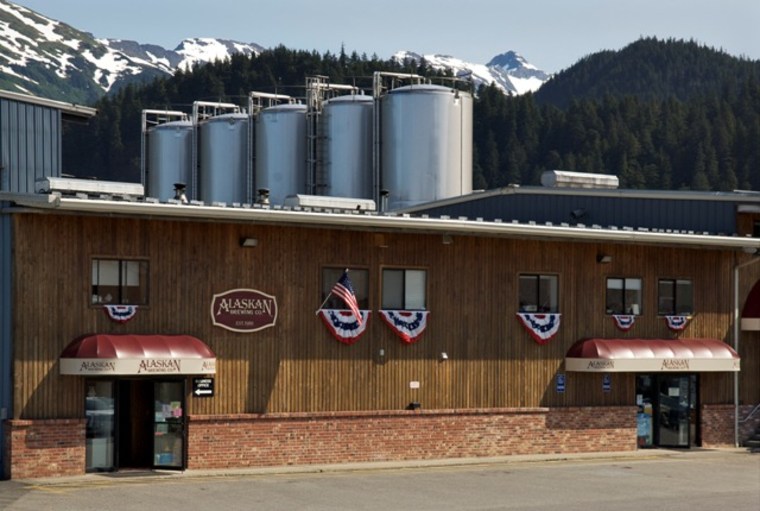The U.S. government is giving a nearly half-million dollar grant to a beer maker in Alaska that aims to install a first-of-its-kind boiler that is fueled entirely by spent grain.
All brewers are confronted with mountains of spent grains — mostly barley. Many get rid of the waste by routing it to farmers for animal feed, a noble service that can help grow a steak to accompany your fine ale.
For the Alaskan Brewing Co. in Juneau, this has involved an added step, since the closest market for its grains is a long-distance, boat-ride away in Seattle.
To keep the grains from decomposing during transport, the brewery first dries them in a machine that is heated by a biomass burner that uses about 50 percent of the spent grain as a fuel source.
Now, with the help of the $458,000 grant from the U.S. Department of Agriculture's Rural Energy for America program, the brewery is installing a machine that will use the dried grain to power a biomass steam boiler.
"The new boiler will eliminate the brewery's use of oil in the grain drying process and displace more than half of the fuel needed to create process steam," the company said in an emailed statement.
Brewers use process team, for example, to boil the sugary water called wort, created when sugars are extracted from the grains, a key step in brewing beer.
The boiler will cut the brewery's overall energy use from oil, and corresponding carbon emissions, by more than 70 percent, according to Alaskan Brewing Co.
The system also eliminates the need to ship the grain south to cattle around Seattle, Ashley Johnston, a company spokeswoman, told me.
The grant is one of eight announced Thursday by the agriculture department, all of which are aimed at helping rural businesses to lower energy costs so that they can stay competitive and, potentially, hire more workers.
In total, 52 projects received over $31 million in grants and loan note guarantees through the program this year. The grants can finance up to 25 percent of a project's cost.
More on beer, energy and the environment:
- Beer brews up higher German beer prices
- The why of yeast's buzz-giving ways
- Yeast is a rising biofuel booster
- A cleaner environment … through beer
- Inventor turns brewery waste into natural gas
- Beer lovers told to beware of global warming
- Beer maker sees green from start to finish
John Roach is a contributing writer for msnbc.com. To learn more about him, check out his website. For more of our Future of Technology series, watch the featured video below.
